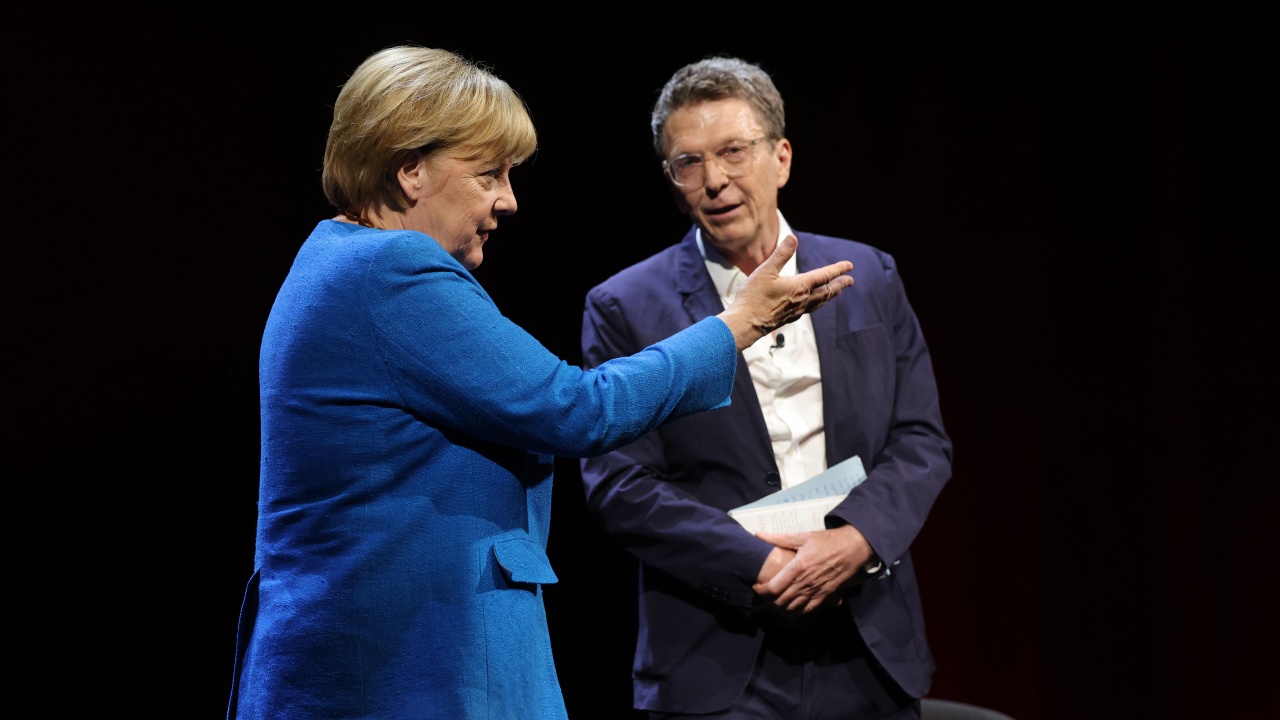Russia's invasion of Ukraine is a "brutal attack that does not respect human rights, and there is no excuse for that," said former German Chancellor Angela Merkel.
Angela Merkel - German politician, Chancellor of Germany.
Born on July 17, 1954 in Hamburg.
The family is in its first interview since leaving office, quoted by DPA.
Everything on the topic:
The Russian invasion of Ukraine 5882
She said the attack was a big mistake, but noted that there had never been an option to create an European security architecture that would persuade Russia to follow another path.
"Of course I was wondering where we went wrong," she said, reflecting on what she said was a "great tragedy."
"Could we have done more to prevent this great tragedy? That's why you are asking me why, of course, I still ask myself such questions."
But Merkel has said she will in no way apologize for her attempts as chancellor to seek a diplomatic solution to growing tensions, while throughout 2021 Russia has consistently hinted that it could invade Ukraine.
"We should not blame diplomacy just because it didn't work," she said.
"So I don't see why I should say I was wrong and I won't apologize for that."
She noted that she has never been naive about the "hatred" that Russian President Vladimir Putin has for the Western model of democracy.
She said she had warned her colleagues several times that he wanted to break up the European Union, which Putin said was a daughter project of NATO's defense pact, which the Russian president used as a pretext for war.
She also pointed out that the position she held required her to consider her words very carefully when commenting on the conflict in Ukraine.
"I am a former chancellor, which means I am not a regular citizen," Merkel said.
She said that she was careful not to influence today's debates, as she said it was not her job to sit and give advice from the side.
Instead, Merkel said, she is only making commitments she thinks she would enjoy.
Merkel added that she also has "full confidence" in the current government of Chancellor Olaf Scholz, who was finance minister in her last cabinet.
Regarding the Minsk agreements, the former chancellor, who in 2014 led the process of imposing sanctions on Western Russia over the annexation of Crimea, said they calmed the situation after the annexation of Crimea and gave Ukraine time to strengthen, according to Reuters. .
"What would have happened if no one cared in 2014 and Putin had just continued? I don't want to imagine it at all," she said.
Merkel added that she used to oppose Ukraine's accession to NATO because she wanted to prevent strained relations with Russia, and Kyiv was not ready for membership.
"This was not the Ukraine we see today. The country was unstable and full of corruption."
The interview was given by the German journalist from Spiegel magazine Alexander Ozang, who has interviewed Merkel several times in the past.
It was broadcast on German public television Aer De.
Merkel left the post of chancellor after last year's parliamentary elections and decided to take a few months off after ruling Germany from 2005 to 2021.
In recent months, Merkel has said she does not want to speak in public because she believes that, as a former leader, she should not interfere by making side comments.
Last week, she finally announced that she supported all efforts by the German government, the EU, the United States, NATO, the G7 and the United Nations to "end this barbaric aggressive war against Russia," the DPA reported.
During her rule, Merkel always tried not to let communication with Putin be cut off completely, although she did not personally sympathize with the Russian leader.
But her actions with regard to the Russian-German Nord Stream 2 gas pipeline have drawn much criticism that the project increases Germany's dependence on Moscow.
The Russian invasion of Ukraine
Angela Merkel
